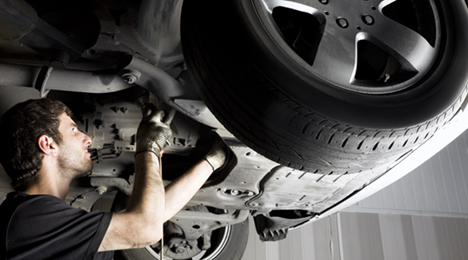5 costly recon mistakes & ways to fix them

By subscribing, you agree to receive communications from Auto Remarketing and our partners in accordance with our Privacy Policy. We may share your information with select partners and sponsors who may contact you about their products and services. You may unsubscribe at any time.
PALO ALTO, Calif. –
Rapid Recon founder and chief executive officer Dennis McGinn pinpointed what he called five common mistakes that go undetected and unresolved in vehicle reconditioning that can cost dealers gross margin and erode their ability to be more competitive.
“As the industry tightens over the months ahead, fixing these five broken processes now will increase reconditioning’s productivity, resource utilization, and time to market or speed to retail,” McGinn said.
“Recon’s efficiency — or lack of — permeates the entire store, so fixing these mistakes, it isn’t just a ‘recon’ issue,” continued McGinn, whose software company manages reconditioning time-to-market workflow to transform dealership reconditioning operations into profit centers.
Here are the five frequent reconditioning mistakes that put used-vehicle profitability at risk, followed by McGinn’s recommendations for correcting them:
1. Us versus them
McGinn explained recon touches so many areas of the business that managers who understand this knock down siloed “us versus them” attitudes that erode recon’s value to the bottom line.
Subscribe to Auto Remarketing to stay informed and stay ahead.
By subscribing, you agree to receive communications from Auto Remarketing and our partners in accordance with our Privacy Policy. We may share your information with select partners and sponsors who may contact you about their products and services. You may unsubscribe at any time.
For example, what adjustments might be suggested to appraisers and buyers so vehicles that flow into recon will require less time and money to become frontline ready faster? McGinn insisted this strategy will improve used-vehicle grosses and inventory turn.
2. Shared resources
McGinn pointed out a dealership’s largest customer is its used-vehicle department, but that it shares its critical need for service department resources with customer needs. This situation keeps waiting either retail or internal needs, thus the common tension here.
“Separate retail and internal service, physically if possible, but certainly philosophically,” McGinn said. “Where done, dealers report improved recon output and quality, and retail advisors and technicians become better at inspection thoroughness and upsell results.”
3. Overconfidence
Without measuring and monitoring recon processes, McGinn stressed that it’s impossible to gain an “honest” grasp of how efficient or inefficient recon is.
When dealers ask their recon departments about their cycle times, McGinn indicated their best estimates will be about five days.
“Yet when the clock measures recon, the actual cycle is eight to 10 days or more,” he said. “You will not maximize gross where a vehicle spends half or more of its magical 30-day retail window in reconditioning.”
4. Not counting the cost
McGinn maintained that the money-meter runs from the day the dealership acquires a trade or buys at auction until that unit is sold. This is called holding cost. NCM Associates pegs this daily cost at $32 per vehicle, on average, though some brand costs can be upward of $50 and more.
At $32 per vehicle per day, McGinn calculated that shaving six recon days off 100 units saves the dealership more than $19,000 a month or more than $230,000 a year.
“These costs (and savings) go against (or toward) actual sold gross,” said McGinn, who computed a sold gross of $3,200 is “actually” $3,008 if the vehicle took six too many days to get to the front line.
“A focus on improving workflow and production through recon puts dollars directly to the bottom line,” he added.
5. Allowing poor communications
McGinn explained that repair approval delays, misplaced vehicles, untracked sublet work and other communication delays wreck recon’s speed to market, throw efficiency in the ditch and frustrate staff.
To rectify those scenarios, he suggested that dealers get all departments on the same track — internalizing a collaborative time-to-market culture. Specifically, McGinn recommended:
—Devise recon repair/parts preapproval buckets based on vehicle mileage to eliminate approval delays.
—Use mobile devices with VIN, bar code or QR code readers to track recon inventory.
—Use software tracking to alert everyone about vehicle status and whereabouts, so everyone takes ownership of faster and more productive recon results.
Rapid Recon is leading time-to-market reconditioning software for franchised and independent dealerships. Rapid Recon benchmarks and best practices can help general managers, used-car managers and service managers fine-tune their reconditioning practices to achieve faster time to market that helps retain vehicle gross.
More details can be found at www.rapidrecon.com.


